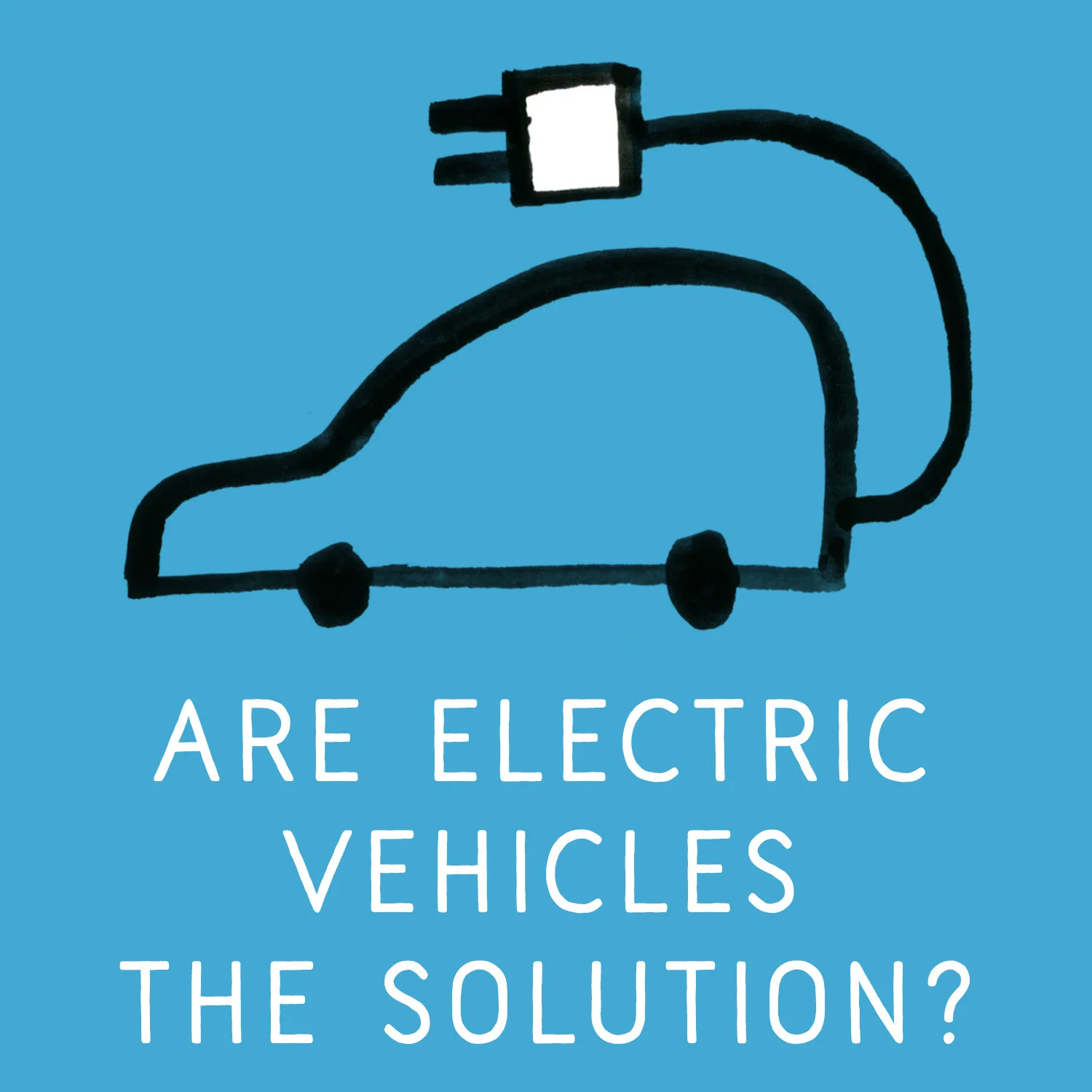Should you buy an EV?
There is a lot of interest in Electric Vehicles (EVs) to help in reducing pollution but also in lowering the carbon footprint of the journeys we make.
It is also important to stress that wherever possible it would be desirable - for everyone who is able - to consider alternatives, such as using bikes, walking and public transport to reduce the use of cars.
In a rural hilly setting like Nailsworth, a lot of people rely on cars to commute to work in Gloucester, Bristol and other locations poorly served by infrequent and poorly connected public transport (ever tried using public transport to get to Cam & Dursley Railway Station from Nailsworth?). There is much work to do to improve our transport infrastructure and options.
Electric Vehicles (EVs) are getting better and cheaper but raise a lot of questions. People will say “EVs are fine … but …”.
But … they use electricity from fossil fuel power stations
Electric Vehicles (EVs) are much more efficient at using energy (about 90%) than Internal Combustion Engines (ICE) are (about 30%). So, while EVs usually require electricity from the grid to charge them, they are efficient at using the energy they receive, and the UK grid itself is becoming progressively less carbon intensive.
But … the grid won’t be able to cope without huge extra capacity
Nationally, 73% of cars are garaged or parked on private property overnight, according to RAC Foundation, and average journeys are low mileage. Utilities are now offering deals to help them to do smart management of the grid, offering customers some perks for signing up to these win-win deals. Studies have shown the peak load of the grid can be greatly lowered in this way, and will cope.
But … EVs require more energy to build them, so aren’t really green
It’s true that it takes more energy to build an EV than an equivalently sized petrol or diesel (because of the battery), but EVs ‘payback’ the extra carbon produced and their health benefits are immediate. In any case, manufacturers are also greening their energy supply, so the ‘embedded carbon’ argument will vanish over time.
But … the world will run out of Lithium used in batteries
We won’t run out of Lithium any time soon and if we do (despite fact we will recover and recycle the Lithium), there will be a new class of more compact batteries, that Professor Clare Grey and others are working on. Overall, we have to decarbonise transport, and do it relatively fast, with electrification a key aspect of that.
But … EVs have a poor range
This used to be true but it’s no longer so, with very good ranges now for most EVs. For most of our journeys, overnight home charging is more than adequate. For longer journeys like holidays, the charging network is getting better every year, with fast charging stations on motorways.
So, should I get an EV car?
EVs can be as green as we want to make them, and as small and lightweight as meet our needs. People who have made the switch say ‘we would never go back’.
So when you next think about a change of vehicle, do consider the EV options.
But also consider as a household your mobility and transport needs. Perhaps you are a two car family and cannot do with less, but maybe one car could be an EV. Or maybe one of you works locally, and you could switch to one car plus an electric bike (to cope with our hills!). People fall in love with their electric bikes!
Everyone’s situation is different, so there is no single answer suitable for all.
The Government have published a quite radical vision for the UK where we walk and cycle much more than we do at present ‘Decarbonising Transport: setting the challenge’ . For those of us that can make such choices, we get the health benefits that come from more exercise.
Having an expensive EV car sitting mostly idle is not a great solution, because it fails to maximise use of resources, so if you have low mileage another option that comes to mind is car sharing.
Alternatively, how about a well funded continuously operating shuttle EV bus, to enable those at the top of hills like in Forest Green to make trips into the centre of town and leave the car at home? Great for congestion, and the air quality in the bowl that is the centre of Nailsworth.
The possibilities are endless.
And if we want to continue to attract visitors driving EVs to our wonderful town to shop and then partake of our great hospitality venues, wouldn’t it be great if we offered EV charging in the town, for those that have travelled from afar? Currently, the only public EV charging points are at Forest Green Rovers.
Whatever the future holds - which needs to be fair to all - EVs will be part of the mix for lowering our town’s carbon footprint and improving air quality - because cars will continue to play an important role, especially in a rural setting like Nailsworth, but let’s not lose sight of the bigger picture.

